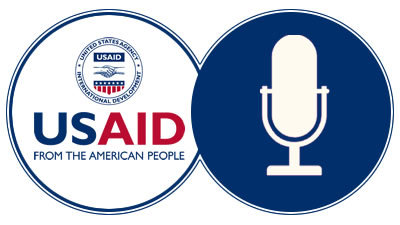
November 2017
Digital Health
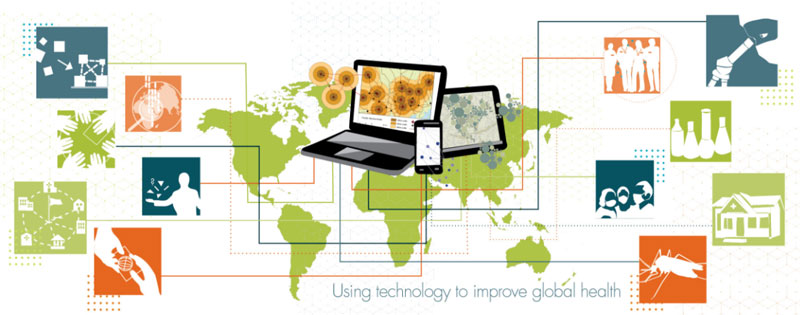
Image credit: MEASURE Evaluation
What Is Digital Health?
Digital health is the concept of using technology to unify a fragmented patchwork of information sources in order to improve the efficiency and accountability of health systems, and, in doing so, radically boost public health.
Why Does Digital Health Matter?
A secure, connected and digitized health system can better target limited medicines where they're most-needed, ensure children are vaccinated on schedule and ensure crucial data are available virtually immediately. Despite significant advancements in digital health, too often investments have focused on a particular project or technology, leading to duplication, fragmentation, and a lack of compatibility of data, according to a recent study by the Health Data Collaborative. USAID is focused on making investments sustainable and leaving lasting value by shifting from siloed and pilot-based projects toward scalable, sustainable and interoperable digital systems. In this issue of the Global Health Newsletter, we describe some of USAID's efforts in supporting robust digital technologies to provide the timely and accurate data needed to sustain strong health systems.
Helping Countries Improve the Availability, Quality and Use of Data
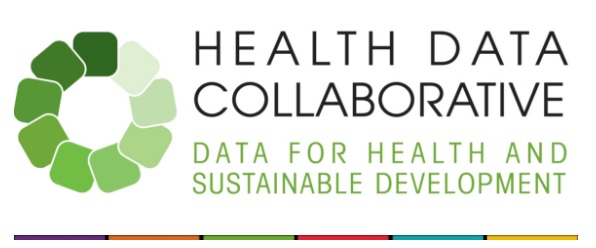
The Health Data Collaborative (HDC) is a joint effort by multiple global health partners to work alongside countries to improve the availability, quality and use of data for local decision-making and track progress toward the health-related Sustainable Development Goals (Goal Number 3 and relevant ones). The Health Data Collaborative exists to empower countries to measure the targets set out in the health-related goals.
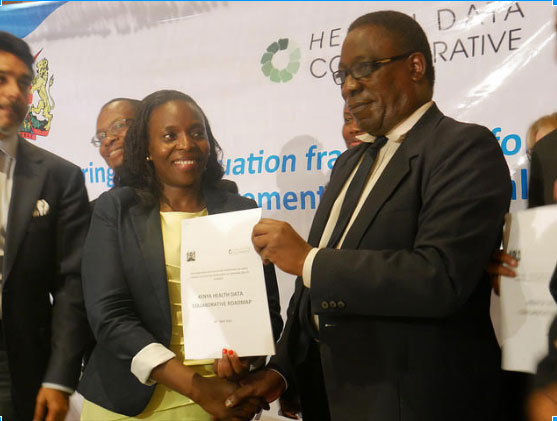
Dr. Isabella Maina (left), from the Kenya Ministry of Health, launches the Health Data Collaborative in Kenya. Photo Credit: Makiko Kitamura, WHO
Achieving these goals will require accurate and timely data to target the right interventions, help countries stay on track and keep leaders accountable to their citizens. In many countries, however, governments do not keep count of births, deaths and other important details about people's health. Furthermore, health data is often fragmented and piecemeal. That makes it harder to make good decisions about where to target resources to improve health and help people to live longer, healthier and more productive lives. The HDC addresses these challenges by getting global health partners to align their financial and technical resources around a common agenda for measurement and accountability at the country level.
HDC Working Groups are a valuable resource that provide expertise and guidance to countries in various technical areas. In fact, many countries including Malawi, Kenya and Tanzania have created their country specific working groups. From the beginning, USAID has been a key partner of the HDC starting with the Measurement and Accountability for Results in Health Summit in June 2015. Get more country-specific activities.
USAID's Global Health Data Analytics Hub
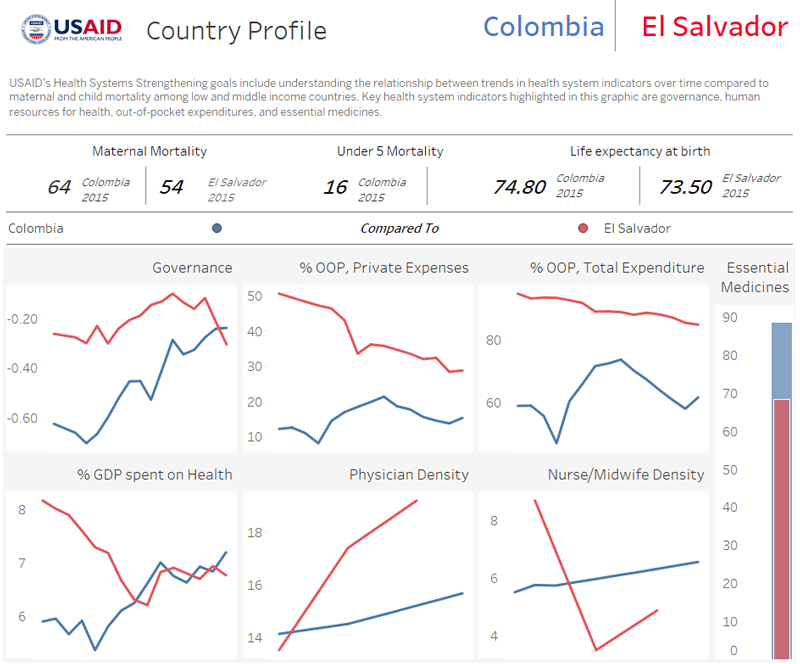
This visualization is part of a dashboard comparing health system indicators to prevent maternal and child deaths in USAID's priority countries.
The Global Health Data Analytics Hub is a newly established unit within USAID's Bureau for Global Health that synthesizes data on global, regional and country-specific health trends and helps USAID's experts better assess the impact of programs on health outcomes. To facilitate a data-driven culture across all operating units, the Global Health Data Analytics Hub provides services in data management, data visualization, data research and innovation and capacity building for USAID's staff.
"The world of data is changing rapidly," says Altin Ilirjani, Senior Data Strategist for the Global Health Bureau. "How we use this data to save and improve lives is now more critical than ever. Investing in the Data Analytics Hub demonstrates the Agency's commitment to evidence-driven programming and results."
Members of the Global Health Data Analytics Hub serve as translators connecting USAID's global health experts to existing data and proven methods for data analysis and visualizations. The Data Analytics Hub members:
- Analyze trends and relationships in global health data sets.
- Produce sophisticated data visualizations and maps to enhance information and communications.
- Develop consistent data research protocols and reporting practices.
- Demonstrate USAID's technical expertise and programming impact through data-driven evidence.
Life-Saving Text Messages in Namibia

Text message reminders can help patients adhere to life-saving HIV/AIDS treatment.
Photo Credit: SIAPS Namibia
We're all busy. Oftentimes we get caught up at work, with family commitments, or with other distractions and just don't have enough hours in the day to swing by the local pharmacy to pick up that prescription, even though we know it's important to take care of ourselves. This is even more true for people living with HIV/AIDS, where remembering to pick up your antiretroviral (ARV) prescription can mean the difference between life and death. In Namibia, USAID's Systems for Improved Access to Pharmaceuticals and Services (SIAPS) project uses the power of mobile phones to remind patients on antiretroviral therapy (ART) about their pharmacy appointments for ARV refills. The service was introduced in May 2015 at 10 public-sector ART sites in 6 of Namibia's 14 regions. The text message-based pharmacy appointment and medication reminder service provides automated text notifications to patients, reminding them to pick up their HIV/AIDS treatment according to appointment dates made by pharmacy staff using the SIAPS-supported Electronic Dispensing Tool. The pre-scheduled appointments also reduce wait time, ensuring patients can quickly and efficiently pick up their medications, increasing the likelihood they will return to pick up their next refill. By helping patients adhere to treatment, the SIAPS program is also reducing transmission of HIV. As recent studies suggest, patients with undetectable viral loads are unable to transmit the virus to their partners – something that is vital to controlling the HIV/AIDS epidemic. Learn more about this project.
Setting Minimum Standards through the Principles of Digital Development
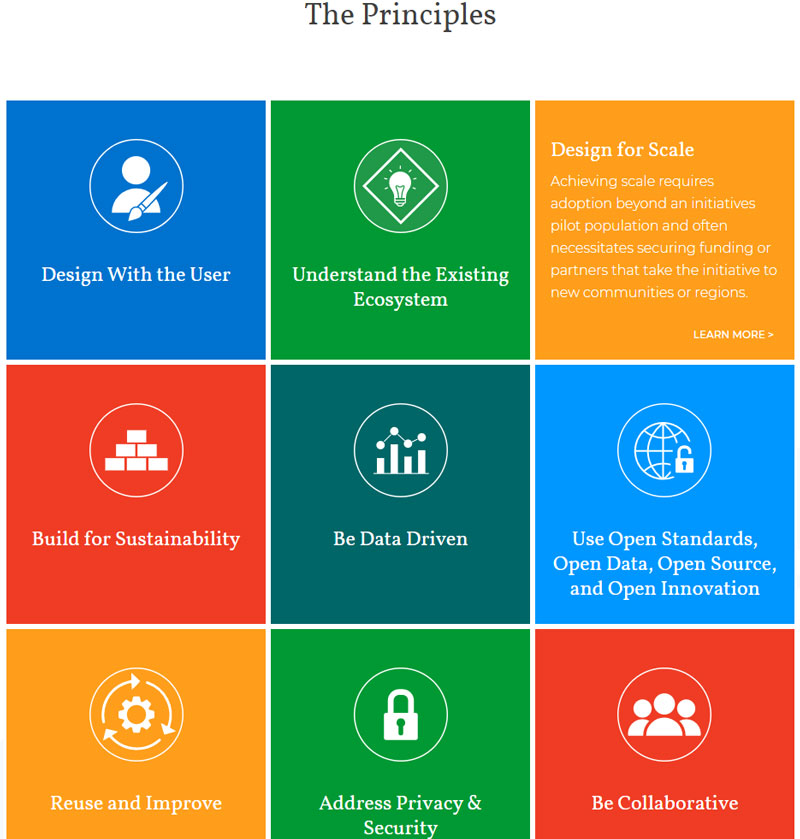
USAID is an endorser of the Principles for Digital Development, a set of best practices in the application of digital technologies for international development projects and programs. The principles call on experts to take a considered approach in program design and implementation, such as by designing with the user (Principle 1) and understanding the ecosystem (Principle 2).
To share information and collaborate in translating these principles into practice, an internal volunteer Health Informatics Working Group meets monthly at USAID. The group is comprised of an interdisciplinary team of experts that includes global and public health domain experts, regional and country experts, health informaticists and technologists, and representatives from various parts of the Agency.
Adhering to the Principles for Digital Development in a global health context means striving to increase the use of scalable and sustainable programs that build on robust platforms, infrastructure and shared services to meet country-identified development needs more efficiently and effectively. More information on the #digitalprinciples is available.
Fighting Ebola with Information
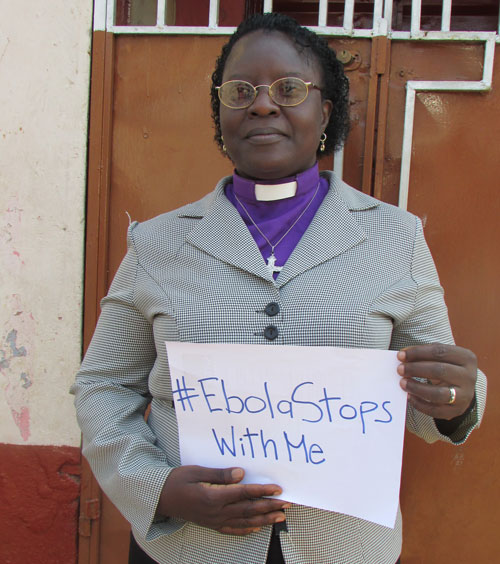
A pastor in Sierra Leone joins the fight against Ebola. Photo Credit: Social Mobilisation Action Consortium
The response to the Ebola outbreak in West Africa shined a spotlight on the importance of timely and accurate data and information flows to combat the disease's spread and deliver effective and targeted action. The report Fighting Ebola with Information explores the use of data and digital technologies during the 2014–2016 Ebola outbreak in West Africa and finds that too frequently in the response, a lack of digitized systems and interoperability slowed the flow of critical and time-sensitive disease outbreak data.
Through field visits and interviews with 130 individuals representing more than 60 organizations that responded to the crisis, the authors make recommendations that should be implemented in advance of the next crisis to strengthen countries' abilities to quickly gather, manage and use data, particularly in public health and other humanitarian emergencies. These recommendations cover a broad range of coordinated investments – including policy environments, technological infrastructure, workforce capacity and the user environment – that are needed to maximize the potential of digital technologies to increase community resilience.
Rwanda's RapidSMS Tracks the Health of Moms and Babies
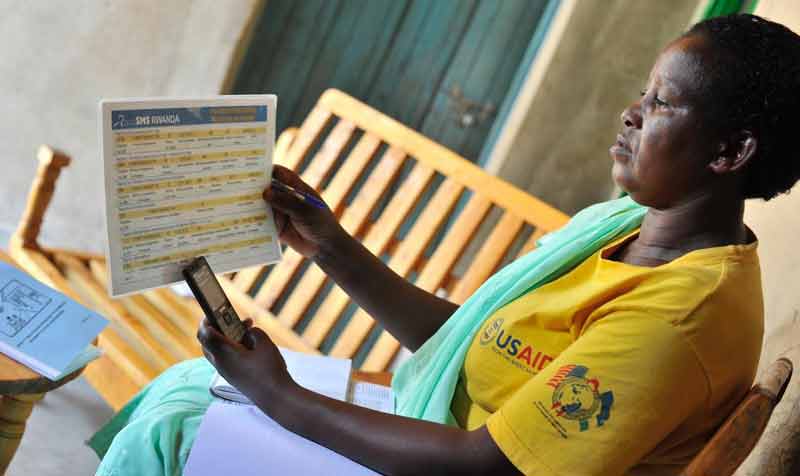
At the end of her visit, Community Health Worker Athalia Mukamusoni sends the health information she collected to a national dashboard that keeps track of mothers' and children's health at the community level. Photo credit: Riccardo Gangale for USAID/Photoshare.
One of the key components of strong health systems are equally strong information systems that enable the collection, analysis and dissemination of accurate health data. RapidSMS is a cell phone-based technology being used throughout Rwanda to improve community maternal and child health. This tool helps community health workers track women's antenatal care visits, identify women at risk, refer women at risk to health facilities, and improve communication with health facilities in the event of an emergency.
Promoted and funded by UNICEF, RapidSMS was first pilot tested in Rwanda in Musanze District. After proving feasible, the Ministry of Health began a national roll-out of the system in June 2010. USAID's Rwanda Health System Strengthening project, implemented by Management Sciences for Health, helped the Ministry to develop a rollout plan and budget, design a training curriculum, and train more than 1,000 community health supervisors who, in turn, trained more than 10,000 community health workers throughout Rwanda. The project also procured and distributed cellphones to the 10,000 community health workers in 30 districts.
"We helped to introduce RapidSMS within the districts, training 45,000 community health workers, many of whom who had never touched a cell phone in their life," says Randy Wilson, team leader for health information system strengthening for Management Sciences for Health in Rwanda, during a BBC interview back in 2015. "If there's even the slightest evidence" of a health concern, RapidSMS "encourages the community health worker not only to refer, but also to accompany, the mother to a facility where they get proper care."
mHealth Guidelines for Data Confidentiality, Privacy and Security

Photo credit: g4ll4is
Throughout the world, health services data are the leading cash cow for hackers. Attracted by the social and economic impact of health data, hackers devise ways to break into health data systems. If data are stolen or compromised, patient-provider trust could be broken or patients could be exposed to dire social or financial risks. Digital health data, especially mHealth, is growing rapidly in low- and middle-income countries (LMICs), leaving them exposed to these risks unless safeguards are in place.
In 2016, MEASURE Evaluation, with funding from USAID, conducted an analysis to understand practices and preparedness of LMICs to tackle data security, privacy and confidentiality. An in-depth study was conducted in Kenya and Tanzania. A major finding was that countries do understand the risks and are searching for guidelines to use with this technology. This year, the MEASURE Evaluation developed and is about to publish mHealth guidelines for data security, privacy and confidentiality for implementers and policymakers. These guidelines will be global digital goods for LMICs. Ghana, Kenya and Tanzania have already expressed interest in using these guidelines to strengthen their mHealth systems.
Health Information System Interoperability Toolkit
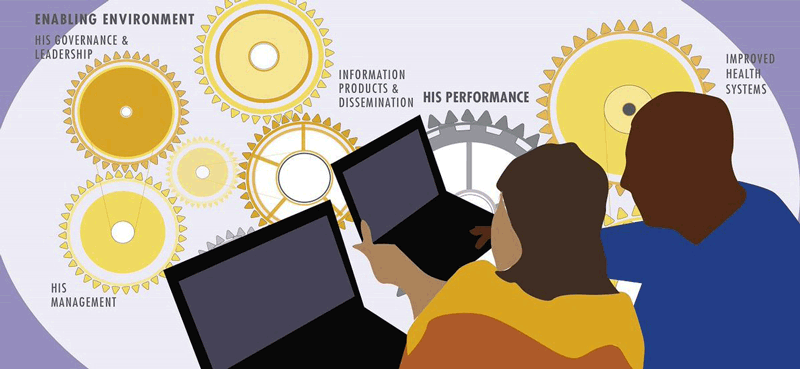
Photo Credit: Courtesy of the Measure Evaluation Project
Interoperability of disparate health information systems holds promise for overcoming barriers to quantity, quality and accessibility of data. However, LMICs lack guidance and tools to assess their capacity to implement interoperable systems. USAID's MEASURE Evaluation project, in collaboration with the Digital Health and Interoperability Working Group of the HDC, has developed an Health Information Systems interoperability maturity model, assessment tool and user guide (toolkit) to help countries assess their capacity for interoperability in their settings and identify where they stand in terms of system readiness and maturity.
The toolkit was reviewed in Ghana and Kenya by digital health stakeholders drawn from ministries of health, implementing partners, universities and the private sector. Further, the maturity model will enable countries to identify gaps and plan appropriate interventions to fill them. The first version, available in November 2017, will pave the way for pilot testing – possibly in Ethiopia, Ghana, Kenya, Malawi and Tanzania, countries which have requested to participate or which have ongoing HDC work. After the pilots, in mid-2018, the toolkit will be available for countries as global digital public goods.
GLOBAL HEALTH VOICES
Podcast
PODCAST –"A Conversation about Digital Health"
Listen to a podcast conversation with Adele Waugaman, USAID's Senior Advisor for Digital Health.
Download a transcript of this podcast [PDF, 81KB].

RECENT HIGHLIGHTS
A New Fund to Advance the Elimination of Two Neglected Tropical Diseases Is Launched
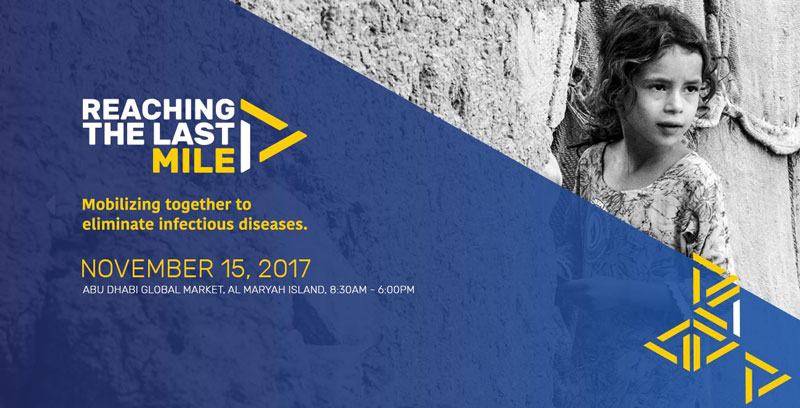
The Reaching the Last Mile Fund was launched during the Reaching the Last Mile: Mobilizing Together to Eliminate Infectious Diseases global health forum held in mid-November in Abu Dhabi. At this event, his Highness Sheikh Mohamed bin Zayed Al Nahyan, Crown Prince of Abu Dhabi and Deputy Supreme Commander of the UAE Armed Forces, launched the fundto raise US$ 100 million to advance elimination of river blindness and lymphatic filariasis, two of the seven neglected tropical diseases on which USAID focuses.
The forum convened more than 200 global health experts, country leaders and advocates to identify concrete ways to reach the very last mile of eliminating preventable diseases. Leaders discussed how public-private partnerships, technology and collaboration can advance effective and sustainable global health outcomes. USAID looks forward to collaborating with the newly launched Fund to advance the elimination agenda, coordinating and co-investing in countries where USAID is currently providing support.
LOOK AHEAD
The 4th annual Global Digital Health Forum will be held in Washington, DC, December 4–6, 2017.
The Digital Health & Interoperability Working Group Meeting will be held immediately after the Global Digital Health Forum, December 7–8, 2017, in Washington, DC.
MEDIA MENTIONS AND RESOURCES
Global Health and the Future Role of the United States (National Academy of Medicine Consensus report)
Using Technology to Advance Global Health: Proceedings of a Workshop (November 2017)
Engaging the Private Sector and Developing Partnerships to Advance Health and the Sustainable Development Goals (features Saving Lives at Birth Grand Challenge)
USAID's Saving Lives at Birth (SL@B) grantees, Bempu, made Time's top 25 inventions of 2017
What Can We Learn from Malawi's First National Community Health Strategy?
How USAID Is Capitalizing on New Trends in Development Finance by Attracting Impact Investors
To Reduce Neonatal Mortality, Nigeria Is Taking a Simple Treatment Nationwide
Innovative Product Development Partnership Reduced Neonatal Mortality in Nepal through Improved Umbilical Cord Care (features Saving Lives at Birth Grand Challenge)
PLOS article – Process Evaluation of Knowledge Transfer Across Industries: Leveraging Coca-Cola's Supply Chain Expertise for Medicine Availability in Tanzania (features Project Last Mile)

